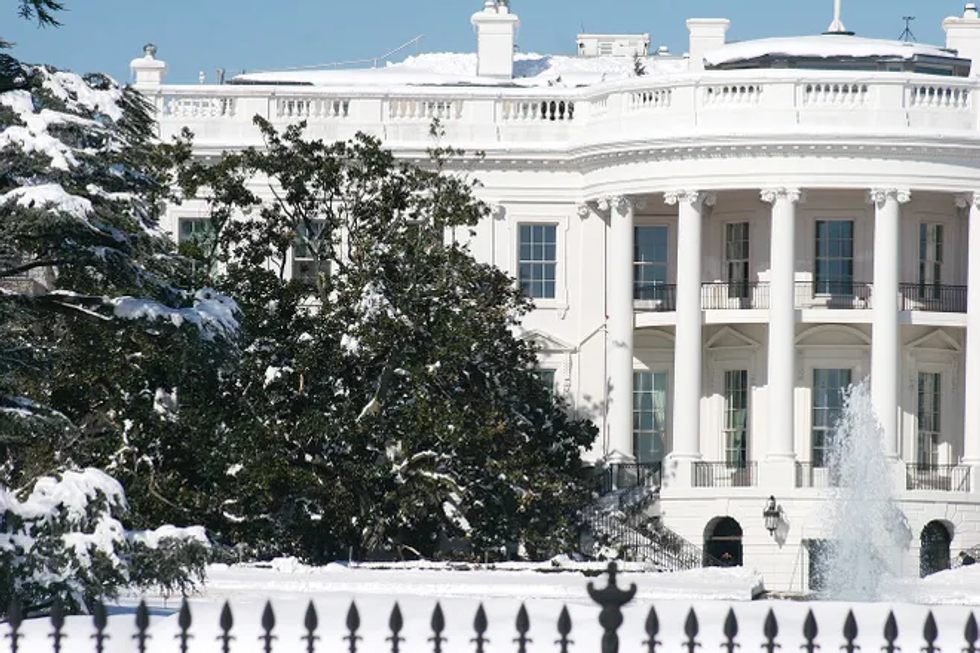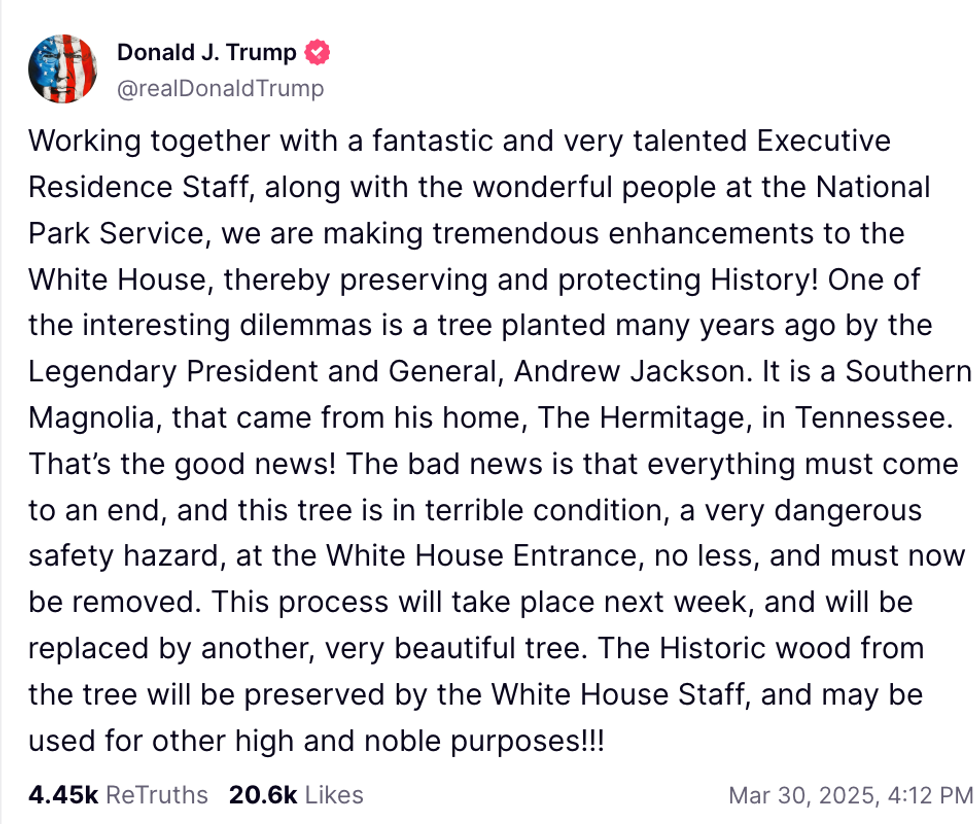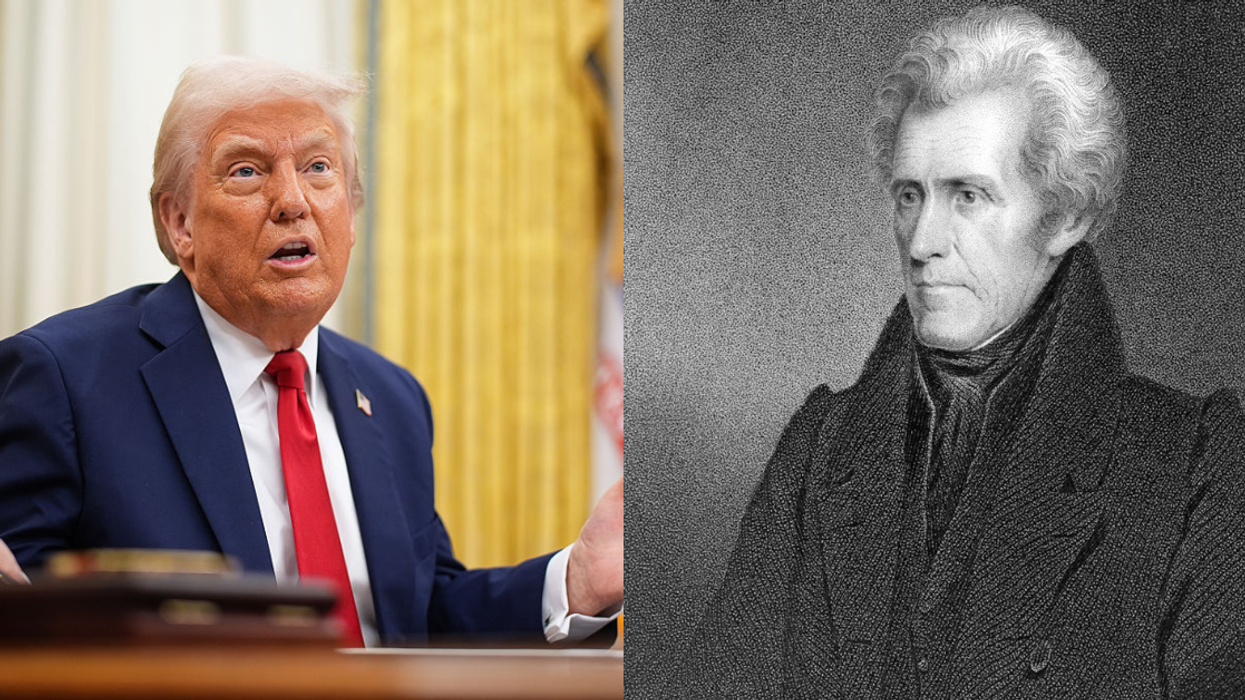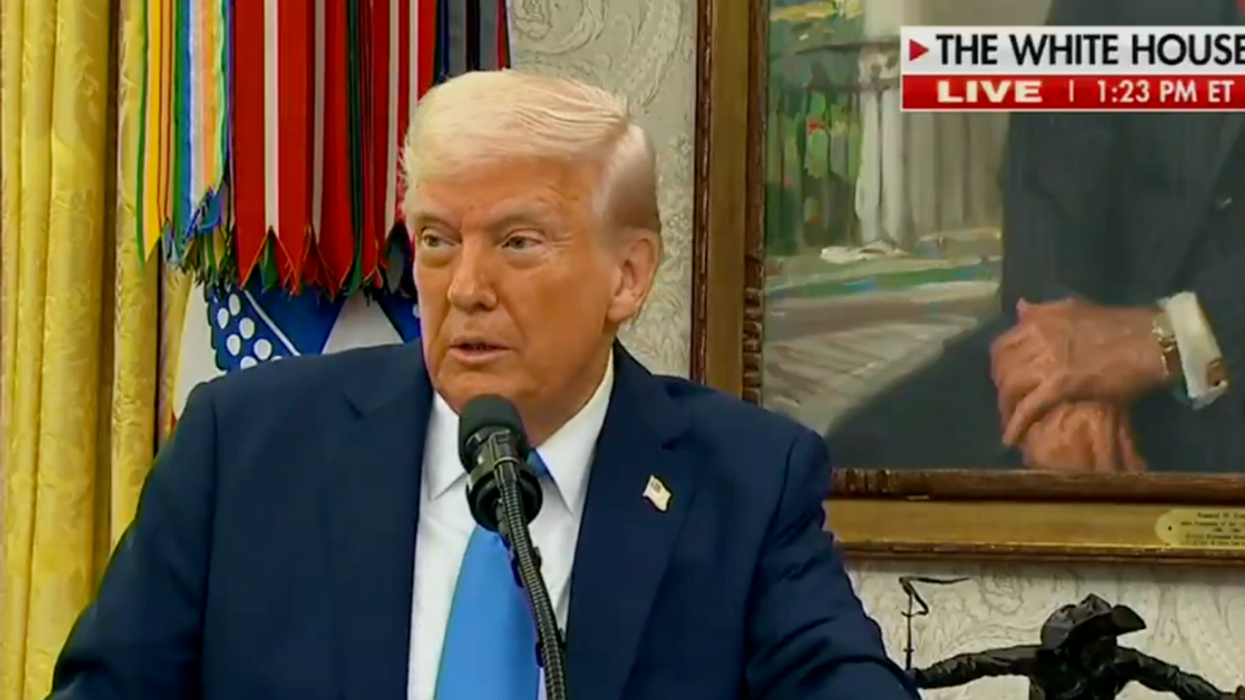President Donald Trump was criticized after he took to Truth Social to announce he would chop down a magnolia tree that was planted next to the White House to commemorate President Andrew Jackson's late wife in the early 1800s, touting the move as one of the "tremendous enhancements" his administration has undertaken.
Trump announced that, following consultations with the Executive Residence Staff and the National Park Service, his administration has decided to replace the tree on the White House’s south side, citing safety concerns. The tree has historically served as a backdrop for past presidents greeting foreign dignitaries.
The tree’s seeds were originally brought to Washington from the Hermitage, Jackson’s home near Nashville, Tennessee. They were planted in memory of Jackson’s late wife, Rachel, who passed away just months before he took office.
You can see it below.

But historical significance appears to matter little to Trump despite his claim that White House staff will preserve the tree's wood:
"Working together with a fantastic and very talented Executive Residence Staff, along with the wonderful people at the National Park Service, we are making tremendous enhancements to the White House, thereby preserving and protecting History!"
"One of the interesting dilemmas is a tree planted many years ago by the Legendary President and General, Andrew Jackson. It is a Southern Magnolia, that came from his home, The Hermitage, in Tennessee. That’s the good news!"
"“The bad news is that everything must come to an end, and this tree is in terrible condition, a very dangerous safety hazard, at the White House Entrance, no less, and must now be removed. This process will take place next week, and will be replaced by another, very beautiful tree."
"The Historic wood from the tree will be preserved by the White House Staff, and may be used for other high and noble purposes!!!"
You can see his post below.

Many have condemned Trump's action.
Trump's move is ironic given the parallels he shares with Jackson.
Recent deportation flights carrying Venezuelans to El Salvador, despite a court ruling prohibiting them, highlight the Trump administration’s apparent disregard for the separation of powers despite the fact that the president lacks the authority to defy a court order.
Historically, Jackson also demonstrated a willingness to bypass constitutional procedures. A staunch populist, Jackson distrusted federal institutions, often prioritizing states’ rights over national unity. His disdain for his predecessor, John Quincy Adams, mirrors Trump’s hostility toward Joe Biden.
Trump’s attacks on agencies like USAID and the Department of Education echo Jackson’s aggressive campaign against the Bank of the United States, which he viewed as too powerful for a democratic society.
Perhaps the most striking parallel lies in forced removals. Just as Trump, in his State of the Union address, pledged to deport migrants accused of violent crimes, Jackson used his first State of the Union to lay the groundwork for the forced removal of Indigenous tribes to lands west of the Mississippi.
At the time, Jackson’s critics in Congress accused him of betraying the republic’s founding ideals—criticisms that resonate under the second Trump administration.

















 @theviplist/TikTok
@theviplist/TikTok @theviplist/TikTok
@theviplist/TikTok @theviplist/TikTok
@theviplist/TikTok @theviplist/TikTok
@theviplist/TikTok @padmalakshmi/TikTok
@padmalakshmi/TikTok @padmalakshmi/TikTok
@padmalakshmi/TikTok @padmalakshmi/TikTok
@padmalakshmi/TikTok @padmalakshmi/TikTok
@padmalakshmi/TikTok @padmalakshmi/TikTok
@padmalakshmi/TikTok @padmalakshmi/TikTok
@padmalakshmi/TikTok